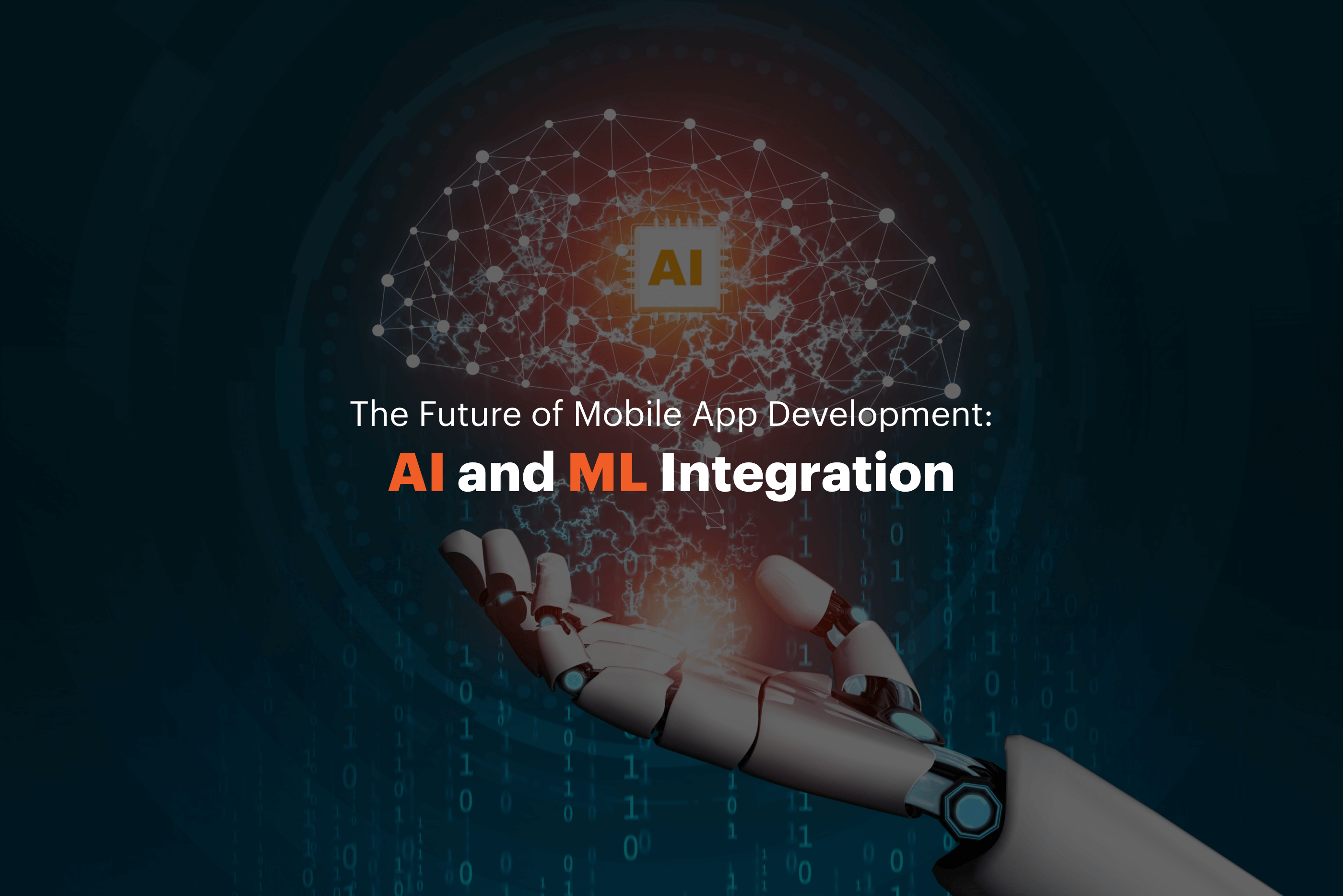Contact Us
If you have made it this far, you are here with a reason. You need our help! We are super friendly and genuinely care to help you succeed.
Enquire today to receive a FREE consultation with an App Guru.
Get in Touch
info [at] appgurus.com.au
The advent of artificial intelligence (AI) and machine learning (ML) has revolutionized the way we interact with technology. Today, AI and ML are being integrated into a wide range of applications, including mobile apps. With the increasing demand for mobile apps and the rising popularity of AI and ML, it is unsurprising that these emerging technologies are impacting mobile app development. In this blog, we will explore the role of AI and ML in mobile app development and the benefits they offer.
Personalized User Experience
One of the most significant benefits of AI and ML in mobile app development is the ability to provide personalized user experiences. With AI and ML, mobile app developers can collect user behavior, preferences, and habits data to create a more customized experience. For example, a music streaming app can use ML algorithms to analyze users' listening history and recommend new songs based on their preferences. Similarly, a fitness app can use AI to analyze users' workout data and provide personalized workout plans.
Predictive Analytics
AI and ML can be used to develop mobile apps that can predict users' actions and behavior. By analyzing user data and behavior patterns, mobile apps can predict what users are likely to do next and provide recommendations accordingly. For example, a shopping app can use predictive analytics to recommend products based on a user's search history and purchase behavior.
Improved User Engagement
AI and ML can be used to improve user engagement in mobile apps . By analyzing user data, mobile app developers can identify the features that users are most interested in and focus on developing those features. Additionally, AI-powered chatbots can provide instant support to users and improve user engagement. Chatbots can also help mobile app developers collect feedback from users, which can be used to improve the app.
Enhanced Security
AI and ML can be used to enhance the security of mobile apps. For example, AI-powered fraud detection systems can be used to detect and prevent fraudulent activities such as account takeovers and fake transactions. Additionally, ML algorithms can be used to detect anomalies in user behavior and flag them for further investigation.
Reduced Development Time
AI and ML can also help reduce the development time for mobile apps. With AI-powered development tools, mobile app developers can automate many of the repetitive tasks involved in the development process, such as testing and debugging. This can significantly reduce the time and effort required to develop high-quality mobile apps.
Improved App Performance
AI and ML can be used to improve the performance of mobile apps. For example, ML algorithms can optimize the app's performance based on the device's capabilities and the user's usage patterns. Additionally, AI-powered monitoring systems can detect and fix real-time performance issues.
Better App Analytics
AI and ML can be used to provide better analytics for mobile apps. By analyzing user data and behavior patterns, mobile app developers can gain insights into how users interact with the app and identify areas for improvement. Additionally, AI-powered analytics tools can provide real-time insights into app performance, user engagement, and other vital metrics.
Intelligent Automation
AI and ML can automate many of the tasks involved in mobile app development, such as testing, debugging, and deployment. This can significantly reduce the time and effort required to develop high-quality mobile apps. Additionally, AI-powered automation tools can help mobile app developers identify and fix bugs in real-time, reducing the time necessary to debug the app.
Handling the Challenge of Data Quality in AI: Approaches and Solutions
Data quality is a critical challenge in artificial intelligence (AI) and machine learning (ML) systems. Poor data quality can lead to inaccurate predictions and decisions, which have significant consequences.
Data Profiling: Data profiling is the process of analyzing data to understand its quality and structure. Data profiling tools can identify anomalies and inconsistencies in the data, such as missing values, duplicate records and incorrect formats. This can help data scientists and engineers to clean and preprocess the data before using it for AI models.
Data Augmentation: Data augmentation techniques can be used to increase the size and diversity of the data used for training AI models. For example, images can be flipped or rotated to create additional training data. This can improve the accuracy and robustness of AI models.
Data Validation: Data validation is the process of verifying the accuracy and completeness of data. Validation techniques can detect errors and inconsistencies in the data, such as incorrect labels or outliers. This helps ensure that the AI model is trained on high-quality data.
Automated Data Cleaning: Automated data cleaning tools can be used to identify and correct errors in the data. These tools can use machine learning algorithms to learn from the data and automatically clean and preprocess it before using it for training AI models.
Continuous Monitoring: Continuous data quality monitoring ensures that AI models perform well over time. Monitoring tools can detect changes in the data or the performance of the AI model and trigger alerts or retraining as needed.
Are you ready to embrace the future?
As an AI-powered language model, I'm already part of the future, and I'm always ready to embrace the latest technological advancements, including AI and ML integration with mobile apps. Integrating AI and ML in mobile app development is already transforming how apps are created and used, making them more intelligent, personalized, and secure.
By leveraging AI and ML technologies, mobile apps can provide users personalized experiences based on their preferences, behavior patterns, and real-time context. This can lead to increased user engagement and satisfaction and improved app performance and security.
AI and ML integration can also help developers to create more efficient and effective apps by automating repetitive tasks and optimizing app performance based on user feedback and data. This can lead to faster development cycles and higher-quality apps.
Overall, AI and ML integration with mobile apps is a significant trend already shaping the future of mobile app development. As AI advances, we can expect even more exciting innovations and possibilities in the mobile app space.
In conclusion, AI and ML are transforming the mobile app development landscape. With the ability to provide personalized user experiences, predictive analytics, improved user engagement, enhanced security, reduced development time, improved app performance, better app analytics, and intelligent automation, AI and ML are enabling mobile app developers to create high-quality apps that meet the needs of today.


